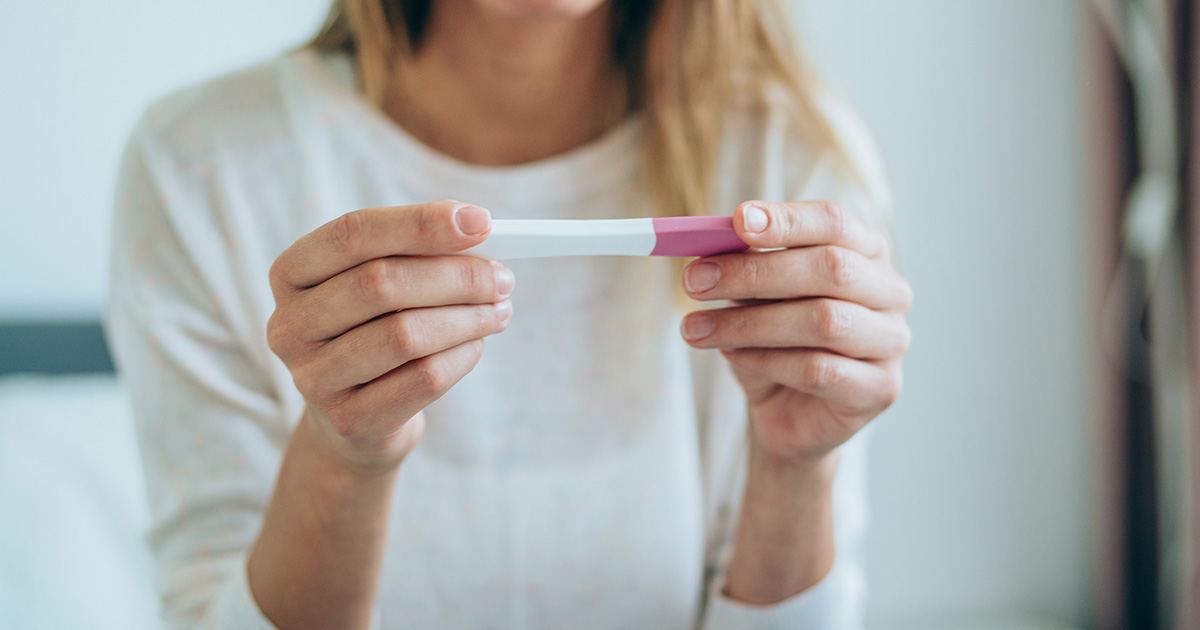
Pregnancy
Pregnancy Brain: Is it Just a Myth or Reality?
Pregnancy is full of so many incredible moments like hearing your baby’s heartbeat to feeling your baby’s first kick. But, let’s face it, some aspects of it can be challenging. While your body is undergoing an amazing physical transformation, it’s possible to experience mental effects too. If you’ve ever experienced forgetfulness or trouble concentrating during pregnancy or postpartum, you’re not alone. We’re exploring the science behind the common term “pregnancy brain” and offering advice to help you cope.
What Is Pregnancy Brain?
Have you ever frantically hunted for your keys, only to find you mistakenly left them in the fridge? Or perhaps you’ve stressed about losing your phone, then realizing it was in your hand the whole time?
These types of lapses in memory or concentration during pregnancy or postpartum can be associated with what is commonly referred to as “pregnancy brain.” It involves symptoms including:
- Forgetfulness
- Poor concentration
- Disorientation
- Trouble recalling names or words
- Memory problems
Potential Causes of Pregnancy Brain
Whether you call it “baby brain,” “pregnancy brain,” or “momnesia,” the truth is that brain fogginess and forgetfulness are very real symptoms for some women during pregnancy. Many women have reported these experiences anecdotally, though there is also scientific research to back it up.
While it’s difficult to pinpoint a single cause, experts suggest it may be due to a combination of fluctuating hormones, sleep disturbances, stress, and structural changes to your brain.
During pregnancy, our bodies experience a flood of sex hormones like estrogen, progesterone, testosterone, and cortisol. Studies have found that these hormones can impact memory during late pregnancy and early postpartum.
Some studies also suggest that the actual architecture of a woman’s brain changes during pregnancy. In particular, gray matter shrinks. While the exact reason for this is unknown, it’s theorized that it may be a way of helping the new mother’s brain to clear space to focus on their newborn’s needs.
Also, it’s no surprise here that a lack of sleep and stress during this big life change can impact your memory and cognitive function.
On the bright side, some research shows that the changes that happen to your brain during pregnancy may actually protect you from age-related cognitive decline later in life.
How To Cope With Pregnancy Brain
While pregnancy brain can be very frustrating, there are simple strategies you can use to better cope with the symptoms.
- Get a good night’s rest. Sleep is key to allowing our brains time to rest, recover, and keep our memory working its best. It’s common to experience sleep disturbances and difficulty sleeping while pregnant, but there are some ways to improve your sleep such as keeping a regular bed and wake time, limiting caffeine, sleeping on your left side to help improve circulation to your heart, staying well-hydrated throughout the day to ease leg cramping at night, and practicing a relaxing nighttime routine like reading a book.
- Keep a to-do list. Using a note-taking app on your phone or using a good old-fashioned pen and paper to-do list can help you to keep track of everything you’re juggling each day. Also, prioritizing tasks from greatest importance to least importance can help to make things feel more manageable.
- Set alarms and notifications. Alerts and reminder settings on your phone or other smart devices can help keep important tasks front and center, while keeping you organized.
- Eat a well-balanced diet full of brain-rich foods. Foods like dark, leafy greens (e.g.., kale and spinach) and with omega-3 fats (e.g., salmon and nuts) have been shown to aid in brain health.
- Give yourself some grace. Remember this is something many women can experience, and you will get through it. Try not to be too hard on yourself!
Rest assured, if you do experience any of these changes during pregnancy or postpartum, it’s very common, and it won’t last forever.
However, if you think you may be experiencing more serious mental health concerns like anxiety or depression during your pregnancy or postpartum, don’t be afraid to speak up. Your Axia Women’s Health provider can help you get the support you need!
Similar Articles

February 16, 2026
Understanding Your Pregnancy Odds: A Guide to Fertility in Your 20s, 30s, and 40s
Pregnancy
Read More
April 7, 2025

August 22, 2024































